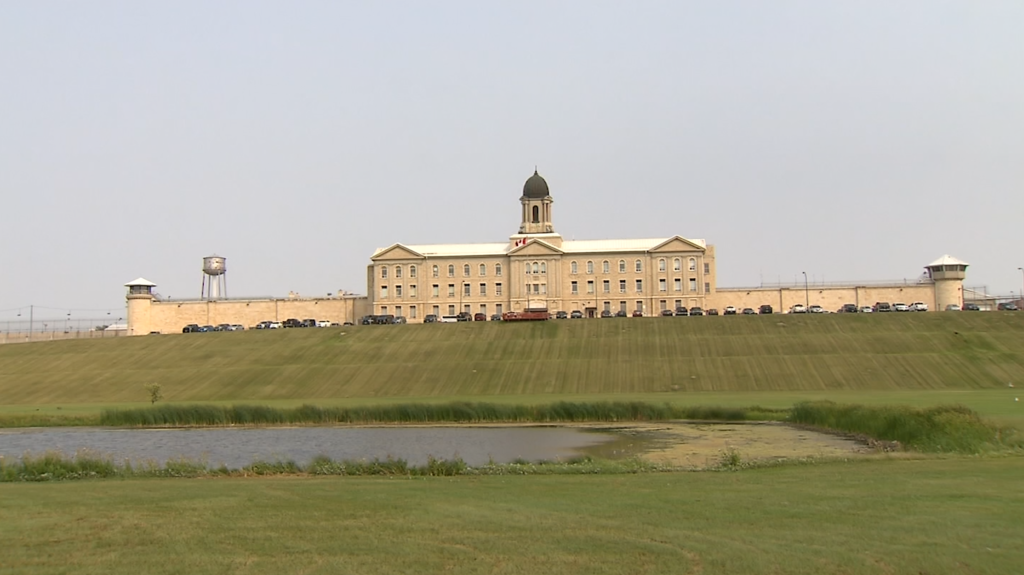‘It’s a nightmare’: Frustration mounts as permanent residency delays continue

Posted January 13, 2023 6:58 pm.
Last Updated January 20, 2023 5:22 pm.
After an unscheduled pause in the Express Entry program for almost two months, Canada is once again inviting people to apply for permanent residency (PR) as of January 11. Candidates looking to make the country their permanent home say they’re furious that the pause will cause further delays in an already backlogged system.
Express Entry is the system the government uses to manage PR applications. Among the thousands in the pool of candidates is Maz Atta.
“My chance towards getting that PR is getting less and less,” he says, while currently on an extended post-graduation work permit that allows him to stay and work in the country until 2024.
“It’s next year. But at this point, I don’t even know if that’s enough time for me to apply for permanent residence if they’re gonna keep pausing the draws like that.”
In order to apply for permanent residency, candidates must receive an invitation from Immigration, Refugees and Citizenship Canada (IRCC), which normally holds draws for invitations every two weeks. The draws were paused in September 2021 and resumed in July 2022, only to be paused again in November due to what IRCC called a technical “glitch.”
“This is just a nightmare. It’s a nightmare that keeps happening again and again,” says Atta.
“Who takes two months to fix an IT glitch? This is ridiculous. It’s absurd.”
CityNews reached out to IRCC to understand the nature of the IT glitch that caused the pause.
IRCC tells CityNews the glitch happened during a major revision related to how work experience is assessed, which is conducted every 10 years. Those technical issues “had adverse implications for the November 23, 2022, Express Entry invitation round,” they say in a statement.
“These technical issues, while a great inconvenience to IRCC clients, have since been resolved. A round of invitations for Express Entry was successfully implemented on January 11, 2023.”
During the seven-week pause from November 23 to January 11, candidates continued to enter the pool, which in turn created stiffer competition because the number of “points” required to qualify for an invite will skyrocket.
PR candidates are given points in a Comprehensive Ranking System (CRS) based on age, level of education, work experience and language proficiency test scores, along with a number of other factors. To get an invite, you need enough points.
“[Before the pause] the cut-off score was 491,” explains Ben, who wants to remain anonymous while he awaits an invitation. “There are approximately more than 3,000 people joining the pool [who have scores] above 490 every two weeks. So the cut-off score will be much, much higher.”
The cut-off score for the draw on January 11 was 507.
“The scores right now are incredibly high. People who have a master’s degree don’t even get anything higher than 500,” adds Atta.
“I’m sitting in the pool at 473, which is decent for an international student, one year experience and everything,” says Isabella Kaboyo, who graduated with a bachelor’s degree from a Canadian university in 2019.
Thereafter, she secured a post-graduation work permit in 2020 and has now completed the basic work experience requirements to enter the Express Entry pool. Her post-grad work permit expires in February, and if she and others like her don’t get an invite to apply for PR, they must leave the country.
“I’ve seen online people say it’s not a right — permanent residence is not a right — and I get that. But bear in mind these are people that have contributed to the economy — paid taxes, worked, you know, created something meaningful in the Canadian society,” she says.
Going back home would mean she would have to start the permanent residency process from scratch, which could take years.
“I came to Canada very hopeful, on a mission to study, finish school and really create an impact in my society — grow and integrate into the Canadian society, which I did pretty honestly. But right now, I feel confused,” she says.
“Sometimes it’s like, was this the right decision?”
Last week IRCC said that Canada had welcomed more than 431,000 permanent residents in 2022 –the highest number recorded since 1913. But Atta says thousands are simultaneously being forced to leave as their work permits expire while waiting for an invite to apply for permanent residency.
“So you’re not really achieving much. You’re focusing on what you’re earning, but at the same time, you’re losing just as much — you’re not accomplishing anything,” he says.
In response to a question about whether more candidates would be invited in each round from now on to make up for the draws that were missed over seven weeks, IRCC says Express Entry rounds are intended to be flexible.
How often they are conducted and how many people are invited is “adjusted as required to ensure that sufficient clients are invited to meet annual admissions goals, while respecting service standards for new clients.”
They add that they are currently in the process of resuming more regularly scheduled draws.
Candidates say the lack of communication and updates from IRCC during the seven-week pause was maddening and a lack of transparency has long been a problem.
“The biggest problem with IRCC is transparency and fairness,” says Ben.
“What they have been doing has been very inconsistent, and … doesn’t comply with what they promised. They make very sudden changes or pauses in their program without telling anyone. It just happens, and after it happens, they don’t tell anyone the reason for that. They don’t tell anyone what they plan to do next.”
“The most painful part of it is the lack of communication,” echoes Kobaya. “[If they said] ‘this is what’s going on, but hang it there or this is what you should do,’ that would make us feel better. But nothing at all leaves you confused and scared.”
“I feel like [they think] we don’t deserve the common decency of at least letting us know that they’re going to pause the draws once again,” adds Atta.
“We are not just numbers. We are human beings that work hard, and every moment of every day, we’re working harder and harder so we can secure a fair spot in this beautiful country, and we’re not getting a fair chance.”
Calls to resume specific draws for for international students
The invitation draw held on January 11 was for all categories of PR applicants – Federal skilled trades, Federal Skilled Workers and Canadian Experience Class (CEC).
Most former international students on post-grad work permits apply for PR via CEC. In prior years, invitation draws were held specifically for that category, but recent draws have all been non-specific.
Atta says former students like him who would likely be invited in CEC-specific draws cannot currently qualify because they’re being pooled in with candidates from all other categories whose scores are naturally much higher due to studying or working longer in the country.
“The average score for CEC candidates before the pandemic used to be 460. And now the scores are above 500. I’m at a score of 482 right now,” he says.
“I’ve gotten a Canadian degree. I have aced my English language test. I’ve even gone forward with doing a French test and I got good grades on that as well and it’s still not enough.”
Ben adds that many candidates are also caught in a Catch-22 situation — the longer they have to wait for an invitation, the more points they lose with time.
“[Some candidates] cannot maintain their current score because they are above 30 years, and once they have their 30th birthday they will get a decrease in their score,” he says — five points are deducted for every year above 30.
“Also, work experience in Canada is only valid for three years,” — which means candidates must be invited to apply within three years of obtaining work experience, otherwise it doesn’t count.
Given how long some candidates have been waiting, Ben says that is a very real possibility.
The IRCC tells CityNews they currently have no plans for a specific draw for CEC candidates.
“However, Canadian Experience Class candidates can continue to expect to be invited through generic rounds. The Department may have a specific Canadian Experience Class round in the future if required,” they say in a statement.
Atta says resuming CEC-specific draws would give candidates like him a fighting chance.
“We’ve done everything that [IRCC] has required us to do. We’re not asking for anything for free here. We’re asking to get a fair shot at getting a permanent residence,” he says.
“People did everything right only to reach this point and be stranded,” adds Kaboyo. “I am scared, I’m anxious. I don’t know what to do. At this point, you can’t even plan ahead because — what am I looking forward to? What am I planning to?”








